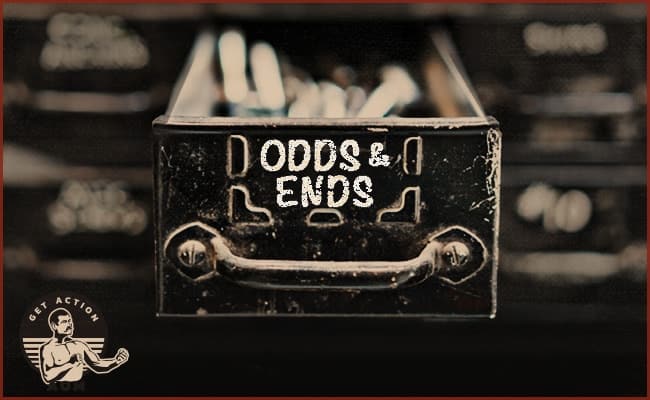
Moby Dick by Herman Melville. This year I’ve been re-reading classics I first read in high school to see how they hold up and what I think about them now as a middle-aged man. Most recently on the docket was Moby Dick, a book I last read in 10th grade English class, where I’ll admit I relied heavily on CliffsNotes. Reading it again twenty-five years later has been a completely different experience. What seemed like a tedious slog through whaling minutiae as a teenager now reveals itself as an intentional profile in obsession. Melville’s strange digressions and technical passages about whale anatomy, ships, and harpoons aren’t bugs but features that slowly pull you into the book’s hypnotic orbit. It’s a weird, wonderful book that works on your brain in unexpected ways. It was also cool to see how the book influenced one of my favorite modern writers, Cormac McCarthy. If the last time you read Moby Dick was in high school, I highly recommend you give it another read as an adult. It will hit different, and you won’t be disappointed.
So You Wanna De-bog Yourself. I stumbled across this fantastic article about the psychology of feeling stuck in life — like you’re standing in a swampy bog that stretches as far as the eye can see. Adam Mastroianni breaks down the three main forces that keep us in this metaphorically leg-sucking mud: insufficient activation energy (like waiting for the perfect solution instead of taking action), bad escape plans (like thinking you’ll magically try harder in the future), and self-created snares (like playing an impossible game where you have to be more successful than your most successful friend). What I love about this article is how Mastroianni coins memorable terms for these patterns, like “gutterballing” (making progress but on other people’s priorities), “declining the dragon” (avoiding necessary confrontations that would actually feel satisfying to take on), and “hedgehogging” (refusing good advice when you’re in a funk). It’s the rare piece of advice writing that’s practical, insightful, and genuinely funny all at once. It reminded me a lot of the “gumption traps” Robert Pirsig writes about in Zen and the Art of Motorcycle Maintenance.
King of Kong: A Fistful of Quarters. I watched this 2007 documentary about the intense rivalry over the Donkey Kong world record more than a decade ago, but I still think about it today. The film follows Steve Wiebe, a laid-off Boeing engineer, as he attempts to dethrone Billy Mitchell, a hot sauce entrepreneur and the longtime record-holder. With his perfectly feathered mullet and haughty attitude, Mitchell comes right out of central casting for a movie villain. In a wild postscript to the film’s original drama, Mitchell was stripped of all his records in 2018 when it was discovered he had cheated his way to the top. While watching grown men obsess over a 1981 video game is fascinating enough, knowledge of the scandal adds an extra layer to the film’s exploration of ambition, validation, and what drives guys to pursue such niche forms of achievement.
Greys Wool Outdoor Slipper Boots. When the temperature drops, it’s time to bust out my trusty Greys slipper boots. I’ve had them for years now, and they hit that perfect sweet spot between house shoe and actual footwear; they’re cozy enough to putz around the house in, but sturdy enough to wear while dropping the kids off at school or running into a gas station. The rubber sole means you don’t have to do that awkward dance of changing shoes just to step outside, while the wool keeps your feet cozy and warm whether indoors or out.
Over on our Dying Breed newsletter, we published Sunday Firesides: Live Life in Day-Tight Compartments and A New Kind of Monasticism: An Introduction.
Quote of the Week
He who has decision of character enough to speak a disagreeable truth, is both bolder and milder than he who nibbles in a low voice, and never ceases nibbling.
—Johann Kaspar Lavater
This article was originally published on The Art of Manliness.

0 Commentaires